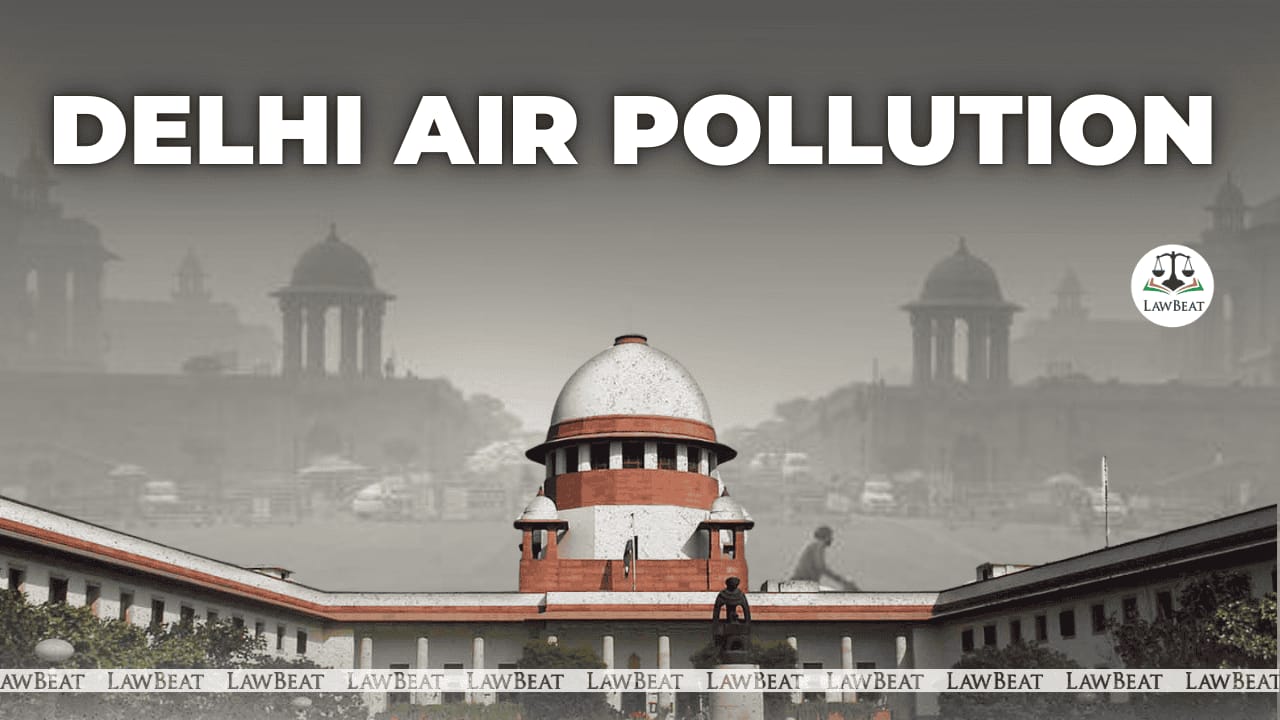SC Directs CAQM to Implement Comprehensive GRAP Schedule

Court was hearing the M.C. Mehta case pertaining to air pollution in Delhi NCR.
Taking note of the downward trend in AQI, the Supreme Court of India today relaxed restrictions imposed in its December 5, 2024, order and directed Commission for Air Quality Management (CAQM) to implement the comprehensive Graded Response Action Plan (GRAP) schedule.
A bench of Justices Abhay S Oka and Ujjal Bhuyan in its order said," Learned ASG has placed on record a chart showing the current trends of AQI in Delhi. We find that from 3rd February onwards, the AQI has not crossed 300. For the time being, we direct that, by relaxing the stipulations under Para 8 and 9 of the order dated 5th December 2024, CAQM will implement the comprehensive GRAP schedule. In case the AQI exceeds 300, we permit the learned Amicus to mention the matter to seek appropriate remedy".
On December 5, the Supreme Court while taking note of the downward trend in the Air Quality Index (AQI) allowed the relaxation of Graded Response Action Plan (GRAP) Stage IV measures to GRAP Stage II. However, the court directed that CAQM could not go below Stage II without further court monitoring.
Noting that monitoring by the court was necessary, the court directed CAQM to incorporate certain additional measures from Stage III as well."If the commission finds that AQI goes above 350 as a precautionary measure Stage 3 measures will have to be immediately implemented. If AQI goes above 400 on a given day, stage 4 will measures will have to be introduced," it added.
During the previous hearing, the Supreme Court had reiterated that Graded Response Action Plan (GRAP) IV will remain in effect in the Delhi NCR region until a consistent downward trend in the AQI is observed.
The Supreme Court pulled up the Delhi government for its inadequate implementation of GRAP IV measures. It further highlighted that the CAQM had outlined mitigating measures and decided to implement them. Accordingly, the court directed the commission to communicate these measures to all concerned authorities and to coordinate efforts to ensure their smooth implementation.
Earlier, the Supreme Court had made it clear that all GRAP-4 measures, except for the measures modified with respect to schools, will continue to operate until Monday. The court went through the compliance report submitted by the commission and remarked, "Hardly anything was done by the police. Complete failure." The court also highlighted that the authorities failed to stop the entry of trucks in the NCR region.
As the bench expressed dissatisfaction over the failure of authorities to implement GRAP 4 measures, it accordingly directed the CAQM to hold a meeting and provide suggestions regarding the transition from GRAP 4 to GRAP 3 or GRAP 2, adding that it is not necessary for all measures in GRAP 4 to be dispensed with. The court said there can be a combination of measures from GRAP 3 and GRAP 4.
On 25 November, the court had refused to relax the Graded Response Action Plan (GRAP)-IV measures put in place to curb the worsening air quality. However, the court had directed the CAQM to reassess the restrictions placed on physical classes of schools, colleges, and educational institutions, which were suspended last week.
On 23 November, the Supreme Court had appointed 13 members of the Bar as court commissioners to visit the truck entry points and verify whether it was being enforced properly.
On 19 November, the Supreme Court had issued a circular advising all to ensure the wearing of masks and taking health measures as the air quality is worsening in the Delhi NCR region. Recently, the Supreme Court had directed all governments in the NCR region to strictly implement Stage 4 of the Graded Response Action Plan (GRAP).
While emphasising that the GRAP 4 will remain in force even if AQI drops below 400, the same bench had observed, "The learned amicus stated that AQI crossed 400 on 12 November. Instead of immediately invoking Stage 3, the Commission directed its implementation from 14 November. The same is the case with stage 4 which was implemented on November 17."
On 11 November, the court had expressed surprise over the delay in imposing the firecracker ban, noting that 'no religion promotes any activity that contributes to pollution or compromises the health of people."
The Supreme Court had while taking note of rampant stubble burning, upheld the right to a pollution-free environment while observing that 'stubble burning is not merely a violation of law but an infringement of the fundamental rights guaranteed under Article 21 of the Constitution.'
In November last year, the Supreme Court had pulled up the governments of Punjab, Rajasthan, Haryana, and UP, asking them to immediately stop stubble burning.
In reference to the worsening of the condition in Delhi NCR, the Supreme Court had remarked that a huge number of taxis were found on Delhi roads, with only one passenger onboard.
Case Title: MC Mehta vs. Union of India
